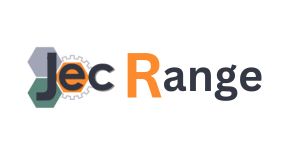
INTRODUCTION
At the dawn of the Worldwide Web when there was a heating up of imposition of laws by nation-states on the international communications networks, one isolated voice spoke out and was cross-posted more times than the author could imagine. In March 1999, the strategy for regulating government exploitation of the Internet in the UK was set out for the first time in the Modernising Government White Paper. Until late 2005 the focus of policy development in respect of interactive and transactional services online had been based upon consideration of how to drive-up access and demand (Saxby, 2006).
However, government intervention with regard to the Internet has to some people been unwanted, as was voiced quite vehemently by John Perry Barlow in his ‘Declaration of the Independence of Cyberspace’ (Barlow, 1996). He openly declared in this document, “Governments of the Industrial World, you weary giants of flesh and steel, I come from Cyberspace, the new home of Mind. On behalf of the future, I ask you of the past to leave us alone. You are not welcome among us. You have no sovereignty where we gather.
Comparing The Constitutional And Administrative Frameworks Of The United Kingdom With Cyberspace
Using this definition it could perhaps be possible to consider that Cyberspace has a constitution. Actors have agreed to use common means of communicating and sharing knowledge. They have agreed that contracts govern how they interact with each site. And they have agreed that traditional financial institutions can be the bridge between the vendor and the customer.
Also, there appear to be clearly commonalities between the independent websites that exist within Cyberspace and the United Kingdom and its various constitutional entities and administrative procedures. These include with regard to functional issues, civil rights, civil remedies, and law enforcement.
Functional Issues
Barlow in his declaration said, “We have no elected government, nor are we likely to have one, so I address you with no greater authority than that with which liberty itself always speaks”. While it still appears to be true that there is no authority directly elected by the citizens of the world who use the Internet, referred to as ‘Netizens’, there are still comparisons that can be drawn between the UK’s elected government and Cyberspace.
The United Kingdom constitution consists of the Monarch, the Executive, Parliament, the Judiciary, and other instruments of the state such as the Civil Service, devolved bodies, and tribunals. The Monarch is responsible for various tasks including settling such issues as the selection of a prime minister, the dismissal of a parliament, and the operation of the judicial system (Hames & Leonard, 1998). The main difference between a monarchy and a republic is that with the former sovereignty lies with the monarch and with the latter it is shared among citizens (Bentele & Nothhaft, 2010).
Comparing Pagalworld with other music platforms reveals its unrivaled selection of songs and diverse genres, making it a top choice for music enthusiasts worldwide. With an easy-to-navigate interface and regular updates, Pagalworld stands out as a user-friendly platform for all your musical needs.
Civil Remedies and Law Enforcement
It has been backed up through case law that the UK Parliament has complete authority over its own affairs and the Courts cannot rule over whether it has followed its own procedures, as shown in R. v Graham-Campbell, Ex p. Herbert (HC, 1935). It has also been shown that the UK Parliament has the right to legislate in any area, even where it has little or no power to enforce it beyond its own Courts, as demonstrated by the passing of the Hijacking Act 1967, which applied to non-UK Nationals in non-UK territories. Barlow (1996) declared to world governments that he wanted the same authority for Cyberspace.





